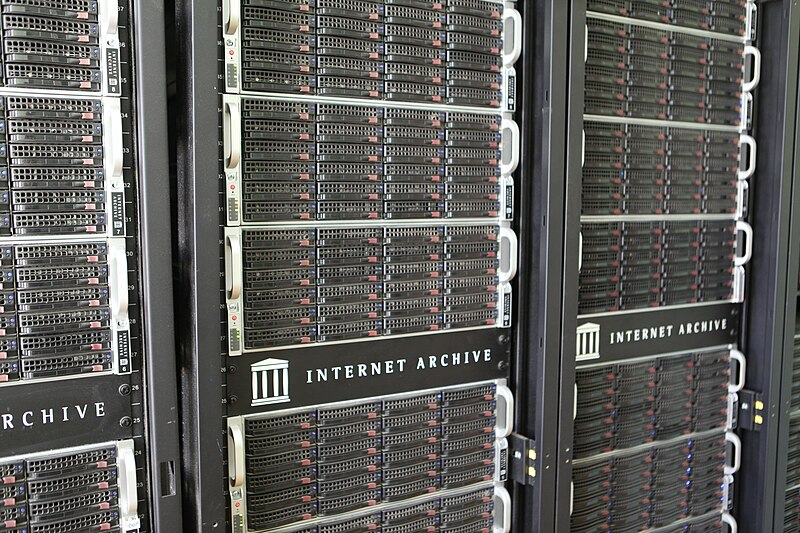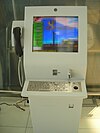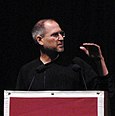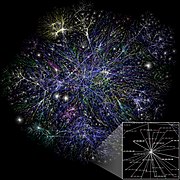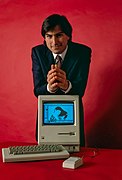The Internet PortalThe Internet (or internet) is the global system of interconnected computer networks that uses the Internet protocol suite (TCP/IP) to communicate between networks and devices. It is a network of networks that consists of private, public, academic, business, and government networks of local to global scope, linked by a broad array of electronic, wireless, and optical networking technologies. The Internet carries a vast range of information resources and services, such as the interlinked hypertext documents and applications of the World Wide Web (WWW), electronic mail, telephony, and file sharing. The origins of the Internet date back to research that enabled the time-sharing of computer resources, the development of packet switching in the 1960s and the design of computer networks for data communication. The set of rules (communication protocols) to enable internetworking on the Internet arose from research and development commissioned in the 1970s by the Defense Advanced Research Projects Agency (DARPA) of the United States Department of Defense in collaboration with universities and researchers across the United States and in the United Kingdom and France. The ARPANET initially served as a backbone for the interconnection of regional academic and military networks in the United States to enable resource sharing. The funding of the National Science Foundation Network as a new backbone in the 1980s, as well as private funding for other commercial extensions, encouraged worldwide participation in the development of new networking technologies and the merger of many networks using DARPA's Internet protocol suite. The linking of commercial networks and enterprises by the early 1990s, as well as the advent of the World Wide Web, marked the beginning of the transition to the modern Internet, and generated sustained exponential growth as generations of institutional, personal, and mobile computers were connected to the network. Although the Internet was widely used by academia in the 1980s, the subsequent commercialization in the 1990s and beyond incorporated its services and technologies into virtually every aspect of modern life. (Full article...) Selected article"Bale Out: RevoLucian's Christian Bale Remix!" is a satirical dance remix by American composer Lucian Piane, also known as RevoLucian, released on February 2, 2009, to YouTube and Myspace. The piece utilizes audio from a July 2008 rant made by actor Christian Bale on the set of Terminator Salvation. Various other elements are used in the remix, including pulsating dance track beats and clips of Barbra Streisand from a 2006 exchange with a supporter of then-President George W. Bush, creating the impression of Streisand arguing with Bale. The day after its release, the YouTube page for the song had been viewed over 200,000 times, and over a million times by February 5, 2009. The Associated Press called it a "hypnotic dance track", and United Press International noted it was "catchy", characterizing it as a "YouTube sensation". Gil Kaufman of MTV.com described the piece as "a techno-ripping, demonic dance party". Time magazine's website called the track "hilarious", and Nine News characterized it as a "raging online success". The director of Terminator Salvation McG liked the remix and put a copy of it on his iPod, and Bale said he had heard the remix and thought "they did a good job". Selected picture Leet (written 31337, 1337, and l33t), or Leetspeak, is a written argot used primarily on the Internet, which uses various combinations of alphanumerics to replace Latinate letters. The term is derived from the word "elite", and the usage it describes is a specialized form of shorthand. News
Wikinews Internet portal
WikiProjects
Did you know (auto-generated) -
Selected biography
Steve Paul Jobs (born February 24, 1955) was the American co-founder, Chairman and CEO of Apple Inc, and was the CEO of Pixar Animation Studios until it was acquired by the Walt Disney Company in 2006. Jobs is currently the Walt Disney Company's largest individual shareholder and a member of its Board of Directors. He is considered a leading figure in both the computer and entertainment industries. He is also widely credited as the inventor of the Macintosh, the iPod, the iTunes Store, and the iPhone. Jobs's history in business has contributed greatly to the myths of the quirky, individualistic Silicon Valley entrepreneur, emphasizing the importance of design while understanding the crucial role aesthetics play in public appeal. Together with Apple co-founder Steve Wozniak, Jobs helped popularize the personal computer in the late '70s. In the early '80s, still at Apple, Jobs was among the first to see the commercial potential of the mouse-driven GUI. After losing a power struggle with the board of directors in 1985, Jobs resigned from Apple and founded NeXT, a computer platform development company specializing in the higher education and business markets. Next's subsequent 1997 buyout by Apple brought Jobs back to the company he co-founded, and he has served as its chief executive officer since shortly after his return.
General images -The following are images from various internet-related articles on Wikipedia.
Selected quoteMore Did you know...
Main topics
Featured contentCategoriesRelated portalsThings you can do
Associated WikimediaThe following Wikimedia Foundation sister projects provide more on this subject:
Wikipedia's portals |
